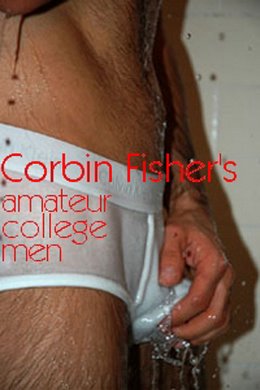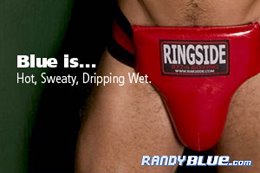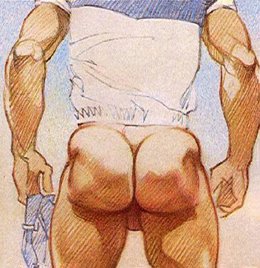Out & about, but still some doubt
After years of struggling with sexuality,
ex-Giant tells his story
By MICHAEL O'KEEFFE
DAILY NEWS SPORTS WRITER
Roy Simmons finally got the chance to let some sunshine into a life darkened by drugs and dishonesty. It was 1992 and Simmons, the former offensive lineman for the Giants and Redskins from 1979 to 1984, appeared on national television to tell Phil Donahue - and millions of viewers, including friends, relatives, ex-teammates and former girlfriends - a truth that he had been concealing for decades.
Simmons said he was gay. He said the pressure that came from concealing his sexuality for so long had cost him a promising career. It had prompted him to lie to loved ones, to cheat, to steal. It had turned him into a dope fiend, a thief, a gay prostitute.
But by 1992, Simmons had gone through a rehab stint and found religion, and he felt he was finally ready to tell the world the truth. The revelation didn't make him whole, though. It didn't magically establish a relationship with the daughter he had abandoned years before. It didn't make peace with the loved ones he had conned for so many years. And it sure didn't revive his NFL career.
So just weeks after his "Donahue" appearance, Simmons was back home in California, standing on the Golden Gate Bridge stoned on crack, trying to muster enough courage to throw himself into the San Francisco Bay.
Simmons didn't jump. Instead, he spent the next decade living in anonymity, sometimes binging on drugs, sometimes seeking help for his addictions. But things just seemed to go from bad to worse: In 1997, he learned he was HIV positive.
"My life, man, I wouldn't wish it on anybody," Simmons says.
Now Simmons, 49, wants to share the story of that life with the athletes who are still in the closet. Simmons is one of only three NFL players who have publicly announced their homosexuality - all after retirement (David Kopay came out in 1975 and Esera Tuaolo in 2002). Simmons estimates two or three members of every NFL team are gay, but sports remains America's last bastion of homophobia, and the NFL doesn't appear to be in any rush to make its homosexuals feel welcome.
"In the NFL," Simmons says, "there is nothing worse than being gay. You can beat your wife, but you better not be gay."
That's why so many gay athletes, Simmons says, live on the down low, having anonymous and often unprotected sex with other men. Those secret lives increase the chances they'll become infected with the AIDS virus and pass it on to lovers, male and female. It also makes them more susceptible to alcoholism, drug abuse, anything that might numb their pain.
Simmons says he has contacted the NFL and its union to share his story with the players, but neither has taken him up on his offer. "I know I can help stop someone from going through what I went through," Simmons says. "I've been there. I've had two jobs in my life - football and running. Mostly running."
NFL spokesman Greg Aiello says he isn't aware of any specific offer from Simmons, adding that the league might consider bringing him in for its annual rookie symposium. But Simmons has already found a much broader audience: He's written a book with author Damon DiMarco, "Out of Bounds," that tells the story of his tortured life.
Simmons has been sober and celibate for several years now, he says, and he's healthier than he's been in decades. His longtime friend, Jimmy Hester, introduced him to a naturopathic healer in Martha's Vineyard, where he lives with Hester, who put him on a strict detoxification program and vitamin regimen. But the doctor, Roni DeLuz, says Simmons carries so much pain in his psyche that he'll never be completely right.
"I don't think Roy will ever be okay," she says. "Every day will be a struggle for him. He could relapse into drugs or other self-destructive behavior. But every time he tells his story, it helps him heal. You can't heal yourself until you are honest with yourself."
* * *
To be Roy Simmons is to live in a world of contradictions. Simmons was a fast, strong athlete who played the most macho position in pro sports; he was also a drag queen in size 16 shoes who loved to strut up and down the streets of San Francisco. Simmons was paid big money to play football; he was also a homeless prostitute who earned $15 a trick. Simmons says he accepts that he is gay; he also told televangelist Pat Robertson and his "700 Club" audience just last year that homosexuality is against God's will.
"If you've been through what Roy has been through, you'd be conflicted, too," says Hester, an entertainment publicist who became friends with Simmons when Hester was 13 and working as at a Jersey restaurant popular with the Giants.
Simmons grew up up in Savannah, Ga., raised mostly by his grandmother. His father lived nearby but wasn't a factor in his life. The family was poor so his mother moved to New York to work as a domestic, and although she regularly sent money home, she was absent for large chunks of his life, too.
Simmons was 11 when he says his life began to spin out of control. A neighbor hired him to do some chores around her house, then left him alone with her husband. The husband, "Travis," called Simmons into a bedroom and pulled down his pants. Then he raped the boy.
Simmons says that it was the moment that has defined his life. He writes in his book that he hated Travis, but he says he was also attracted to him. Simmons and his neighbor had other sexual encounters after that rape; years later, after his first season with the Giants, Simmons says he and a buddy ran into Travis at a Savannah gay bar and had "revenge" sex with him.
"Maybe a part of me saw him as the person I'd sensed I was missing all along," Simmons writes.
Simmons spent his teen years having sex with boys even as he cultivated a relationship with the girl who would eventually become the mother of his child. "In my head I had this vision of my girl dressed up all pretty in white on our wedding day," he writes.
But there was one thing Simmons wasn't confused about: football. He was a big, strong all-city football player who worked hard to master the game. His skills attracted recruiters from big-time programs who offered him girls, clothes, cars and envelopes full of $100 bills. In the end, Simmons signed on with Georgia Tech, even though the only thing that school offered was an education and an opportunity to play ball.
At Georgia Tech, Simmons - now nicknamed "Sugar Bear" because of his sweet personality - proved to be an outstanding football player. He joined a fraternity, smoked a lot of pot and fooled around with girls. He also became a regular at a gay bathhouse near campus.
Simmons was drafted by the Giants in the eighth round of the 1979 draft and moved into New York's gay scene, becoming a regular at the city's gay clubs and bathhouses. He'd hire hustlers and take them to hotel rooms; he says he even had a Tanqueray-and-Quaalude-fueled fling with a teammate one night.
Simmons suspects they weren't the only teammates who got together: "I suspected that two of my teammates were fooling around with each other," he writes in his book. "They were way too buddy-buddy with each other for it to be a purely heterosexual friendship."
Drugs, he says, were everywhere. He says he saw one teammate snort coke just before a game; he saw others freebasing at a party. Simmons became a fixture of what he calls the Giants' drug clique and threw wild dope and sex parties. One party drew not just teammates but members of the Jets, Nets and now-defunct New York Cosmos and New Jersey Generals as well. "Cocaine, reefer, uppers, downers, you name it," Simmons writes, "it was on the coffee table, laid out like a buffet."
Simmons was juggling affairs with several women, including one who became pregnant and gave birth to a girl she named Kara. He began a serious relationship with a man he met at a bathhouse. The alcohol and the drugs diminished his performance on the field, and he was demoted from starter to sub. Simmons finally snapped, worn out by the pressure of his hidden sex life and the demands of his family, the drinking and drugging. Just before the 1982 season, he told coach Ray Perkins he wanted to take a year off.
He spent the year as a baggage handler at JFK and tried to come back the following season. But new coach Bill Parcells had no use for Simmons and he was cut. The Redskins picked him up and he went with the team to Super Bowl XVIII in Tampa, where the Skins got waxed by the Los Angeles Raiders.
Simmons was cut by the Redskins in '84 - the freebasing habit he says he picked up in D.C. didn't help his career - and had a brief stint with the USFL's Jacksonville Bulls. The USFL might have been second-tier, but it was big league when it came to drugs and drinking, Simmons says. "On some occasions I was blowing a grand or more a day on drugs," he writes.
But the Bulls folded and Simmons' career was over by the end of the 1985 season. Simmons retired from football with nothing to show for it except a voracious drug habit and a hidden sex life.
* * *
Simmons moved to Newark after his football career ended and although he was still drinking heavily and using drugs, he fell in with a group of professional gay men. It was a community that looked after each other and though Simmons was still in the closet, he felt at peace.
But in 1990, Simmons confided to a cousin that he was gay. The cousin told one of Simmons' former girlfriends. The word spread to other relatives and friends. Simmons, angry and humiliated, withdrew $10,000 from his bank and flew to San Francisco. He became a regular in that city's bathhouses and gay clubs. He even started dressing up in drag - all 290 pounds of him.
Simmons finally bottomed out in California. He blew his money on booze and drugs and went on welfare. He spent five months in prison for shoplifting. He prostituted himself for $15, $20 or a few lines of cocaine.
He became a large, mean drug addict who lashed out at anyone who slighted him. He says he beat and stabbed one guy who ripped him off in a drug deal, leaving his bleeding, wheezing body in a filthy alley. He still doesn't know if the man lived or died.
Simmons finally entered a drug rehab program and started attending a church. Then he appeared on "Donahue," tempted by the prospect of a free trip back East. But Simmons was not prepared for the consequences of his national outing. Friends and relatives who were not aware of his sexuality were shocked. Former teammates asked if he was high. None of them congratulated Simmons; none of them said, "What you did took guts."
A month later, he had traded most of his possessions - and his roommate's - for crack. He drove to the Golden Gate Bridge and prepared to jump. But then he heard his grandmother's voice telling him that people who commit suicide go straight to hell.
He called Jimmy Hester, who arranged for Simmons to return to Long Island, where Simmons' mother and other family members lived, and he entered an intensive drug program. He had relapses and he contracted HIV, but Simmons says he feels better now than he has in decades. The book has been cathartic, he says, and he hopes his message might get through to other struggling athletes. He's even established a relationship with his daughter, Kara, who is now 24 years old and recently graduated from college.
"I feel good," he says. "Not wonderful. I'm working with a therapist. I'm hoping if I can understand what I went through and I can explain it to other guys, maybe those other guys won't have to suffer like I did."
Originally published on January 29, 2006
ex-Giant tells his story
By MICHAEL O'KEEFFE
DAILY NEWS SPORTS WRITER
Roy Simmons finally got the chance to let some sunshine into a life darkened by drugs and dishonesty. It was 1992 and Simmons, the former offensive lineman for the Giants and Redskins from 1979 to 1984, appeared on national television to tell Phil Donahue - and millions of viewers, including friends, relatives, ex-teammates and former girlfriends - a truth that he had been concealing for decades.
Simmons said he was gay. He said the pressure that came from concealing his sexuality for so long had cost him a promising career. It had prompted him to lie to loved ones, to cheat, to steal. It had turned him into a dope fiend, a thief, a gay prostitute.
But by 1992, Simmons had gone through a rehab stint and found religion, and he felt he was finally ready to tell the world the truth. The revelation didn't make him whole, though. It didn't magically establish a relationship with the daughter he had abandoned years before. It didn't make peace with the loved ones he had conned for so many years. And it sure didn't revive his NFL career.
So just weeks after his "Donahue" appearance, Simmons was back home in California, standing on the Golden Gate Bridge stoned on crack, trying to muster enough courage to throw himself into the San Francisco Bay.
Simmons didn't jump. Instead, he spent the next decade living in anonymity, sometimes binging on drugs, sometimes seeking help for his addictions. But things just seemed to go from bad to worse: In 1997, he learned he was HIV positive.
"My life, man, I wouldn't wish it on anybody," Simmons says.
Now Simmons, 49, wants to share the story of that life with the athletes who are still in the closet. Simmons is one of only three NFL players who have publicly announced their homosexuality - all after retirement (David Kopay came out in 1975 and Esera Tuaolo in 2002). Simmons estimates two or three members of every NFL team are gay, but sports remains America's last bastion of homophobia, and the NFL doesn't appear to be in any rush to make its homosexuals feel welcome.
"In the NFL," Simmons says, "there is nothing worse than being gay. You can beat your wife, but you better not be gay."
That's why so many gay athletes, Simmons says, live on the down low, having anonymous and often unprotected sex with other men. Those secret lives increase the chances they'll become infected with the AIDS virus and pass it on to lovers, male and female. It also makes them more susceptible to alcoholism, drug abuse, anything that might numb their pain.
Simmons says he has contacted the NFL and its union to share his story with the players, but neither has taken him up on his offer. "I know I can help stop someone from going through what I went through," Simmons says. "I've been there. I've had two jobs in my life - football and running. Mostly running."
NFL spokesman Greg Aiello says he isn't aware of any specific offer from Simmons, adding that the league might consider bringing him in for its annual rookie symposium. But Simmons has already found a much broader audience: He's written a book with author Damon DiMarco, "Out of Bounds," that tells the story of his tortured life.
Simmons has been sober and celibate for several years now, he says, and he's healthier than he's been in decades. His longtime friend, Jimmy Hester, introduced him to a naturopathic healer in Martha's Vineyard, where he lives with Hester, who put him on a strict detoxification program and vitamin regimen. But the doctor, Roni DeLuz, says Simmons carries so much pain in his psyche that he'll never be completely right.
"I don't think Roy will ever be okay," she says. "Every day will be a struggle for him. He could relapse into drugs or other self-destructive behavior. But every time he tells his story, it helps him heal. You can't heal yourself until you are honest with yourself."
* * *
To be Roy Simmons is to live in a world of contradictions. Simmons was a fast, strong athlete who played the most macho position in pro sports; he was also a drag queen in size 16 shoes who loved to strut up and down the streets of San Francisco. Simmons was paid big money to play football; he was also a homeless prostitute who earned $15 a trick. Simmons says he accepts that he is gay; he also told televangelist Pat Robertson and his "700 Club" audience just last year that homosexuality is against God's will.
"If you've been through what Roy has been through, you'd be conflicted, too," says Hester, an entertainment publicist who became friends with Simmons when Hester was 13 and working as at a Jersey restaurant popular with the Giants.
Simmons grew up up in Savannah, Ga., raised mostly by his grandmother. His father lived nearby but wasn't a factor in his life. The family was poor so his mother moved to New York to work as a domestic, and although she regularly sent money home, she was absent for large chunks of his life, too.
Simmons was 11 when he says his life began to spin out of control. A neighbor hired him to do some chores around her house, then left him alone with her husband. The husband, "Travis," called Simmons into a bedroom and pulled down his pants. Then he raped the boy.
Simmons says that it was the moment that has defined his life. He writes in his book that he hated Travis, but he says he was also attracted to him. Simmons and his neighbor had other sexual encounters after that rape; years later, after his first season with the Giants, Simmons says he and a buddy ran into Travis at a Savannah gay bar and had "revenge" sex with him.
"Maybe a part of me saw him as the person I'd sensed I was missing all along," Simmons writes.
Simmons spent his teen years having sex with boys even as he cultivated a relationship with the girl who would eventually become the mother of his child. "In my head I had this vision of my girl dressed up all pretty in white on our wedding day," he writes.
But there was one thing Simmons wasn't confused about: football. He was a big, strong all-city football player who worked hard to master the game. His skills attracted recruiters from big-time programs who offered him girls, clothes, cars and envelopes full of $100 bills. In the end, Simmons signed on with Georgia Tech, even though the only thing that school offered was an education and an opportunity to play ball.
At Georgia Tech, Simmons - now nicknamed "Sugar Bear" because of his sweet personality - proved to be an outstanding football player. He joined a fraternity, smoked a lot of pot and fooled around with girls. He also became a regular at a gay bathhouse near campus.
Simmons was drafted by the Giants in the eighth round of the 1979 draft and moved into New York's gay scene, becoming a regular at the city's gay clubs and bathhouses. He'd hire hustlers and take them to hotel rooms; he says he even had a Tanqueray-and-Quaalude-fueled fling with a teammate one night.
Simmons suspects they weren't the only teammates who got together: "I suspected that two of my teammates were fooling around with each other," he writes in his book. "They were way too buddy-buddy with each other for it to be a purely heterosexual friendship."
Drugs, he says, were everywhere. He says he saw one teammate snort coke just before a game; he saw others freebasing at a party. Simmons became a fixture of what he calls the Giants' drug clique and threw wild dope and sex parties. One party drew not just teammates but members of the Jets, Nets and now-defunct New York Cosmos and New Jersey Generals as well. "Cocaine, reefer, uppers, downers, you name it," Simmons writes, "it was on the coffee table, laid out like a buffet."
Simmons was juggling affairs with several women, including one who became pregnant and gave birth to a girl she named Kara. He began a serious relationship with a man he met at a bathhouse. The alcohol and the drugs diminished his performance on the field, and he was demoted from starter to sub. Simmons finally snapped, worn out by the pressure of his hidden sex life and the demands of his family, the drinking and drugging. Just before the 1982 season, he told coach Ray Perkins he wanted to take a year off.
He spent the year as a baggage handler at JFK and tried to come back the following season. But new coach Bill Parcells had no use for Simmons and he was cut. The Redskins picked him up and he went with the team to Super Bowl XVIII in Tampa, where the Skins got waxed by the Los Angeles Raiders.
Simmons was cut by the Redskins in '84 - the freebasing habit he says he picked up in D.C. didn't help his career - and had a brief stint with the USFL's Jacksonville Bulls. The USFL might have been second-tier, but it was big league when it came to drugs and drinking, Simmons says. "On some occasions I was blowing a grand or more a day on drugs," he writes.
But the Bulls folded and Simmons' career was over by the end of the 1985 season. Simmons retired from football with nothing to show for it except a voracious drug habit and a hidden sex life.
* * *
Simmons moved to Newark after his football career ended and although he was still drinking heavily and using drugs, he fell in with a group of professional gay men. It was a community that looked after each other and though Simmons was still in the closet, he felt at peace.
But in 1990, Simmons confided to a cousin that he was gay. The cousin told one of Simmons' former girlfriends. The word spread to other relatives and friends. Simmons, angry and humiliated, withdrew $10,000 from his bank and flew to San Francisco. He became a regular in that city's bathhouses and gay clubs. He even started dressing up in drag - all 290 pounds of him.
Simmons finally bottomed out in California. He blew his money on booze and drugs and went on welfare. He spent five months in prison for shoplifting. He prostituted himself for $15, $20 or a few lines of cocaine.
He became a large, mean drug addict who lashed out at anyone who slighted him. He says he beat and stabbed one guy who ripped him off in a drug deal, leaving his bleeding, wheezing body in a filthy alley. He still doesn't know if the man lived or died.
Simmons finally entered a drug rehab program and started attending a church. Then he appeared on "Donahue," tempted by the prospect of a free trip back East. But Simmons was not prepared for the consequences of his national outing. Friends and relatives who were not aware of his sexuality were shocked. Former teammates asked if he was high. None of them congratulated Simmons; none of them said, "What you did took guts."
A month later, he had traded most of his possessions - and his roommate's - for crack. He drove to the Golden Gate Bridge and prepared to jump. But then he heard his grandmother's voice telling him that people who commit suicide go straight to hell.
He called Jimmy Hester, who arranged for Simmons to return to Long Island, where Simmons' mother and other family members lived, and he entered an intensive drug program. He had relapses and he contracted HIV, but Simmons says he feels better now than he has in decades. The book has been cathartic, he says, and he hopes his message might get through to other struggling athletes. He's even established a relationship with his daughter, Kara, who is now 24 years old and recently graduated from college.
"I feel good," he says. "Not wonderful. I'm working with a therapist. I'm hoping if I can understand what I went through and I can explain it to other guys, maybe those other guys won't have to suffer like I did."
Originally published on January 29, 2006










0 Comments:
Post a Comment
<< Home